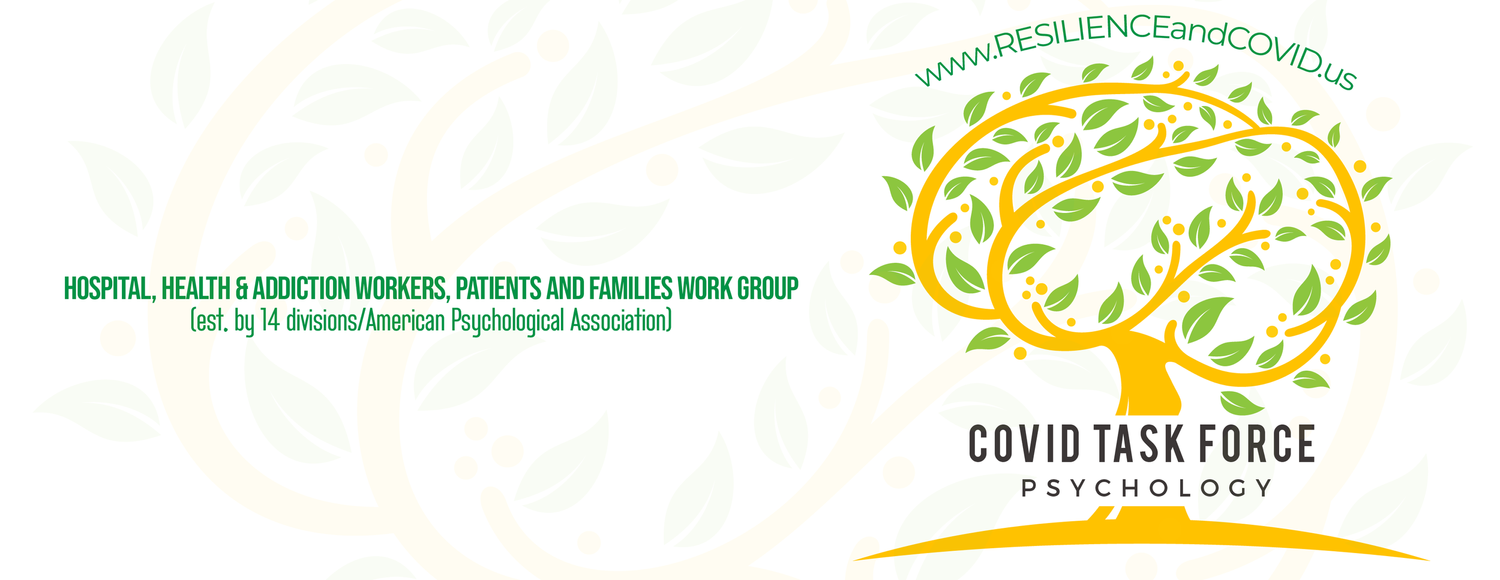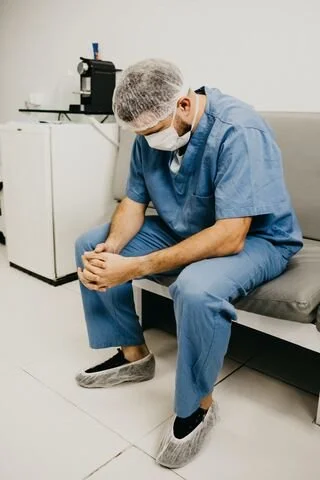Psychological Impact of COVID-19 on You
Why you need to read a post about it.
This is Part 1 of a three-part series about the origin, purpose, and intentions of this blog. Our primary goal is to provide people with tools and resources to cope with, and potentially grow from, the many varieties of psychological trauma wrought by COVID-19. Our particular focus is workers in medical settings, patients and families.
Read Part 2 here. When Pandemic Trauma Hits Home, by Maureen O'Reilly-Landry, Ph.D.
Read Part 3 here: On the COVID-19 Battlefield, by Patricia A. O'Gorman, Ph.D.
This post was co-authored by Patricia O'Gorman, Ph.D.
The psychology working group sponsoring this blog arose when psychologist Dr. Maureen O’Reilly-Landry witnessed the dedication of her husband and son, both doctors at a medical center overwhelmed with COVID-19 patients in the first epicenter of the pandemic. She felt inspired to use her knowledge of psychological trauma in medical settings in a meaningful way and to join them in their mission. This is Part 1 of a three-part series about the origin, purpose, and goals of this blog.
Our initial thought was to address the potential psychological trauma of frontline medical responders in the acute phases of the COVID crisis. The well-being of medical personnel in Emergency Rooms and Intensive Care Units was our primary concern.
Source: Jonathan Borba/Unsplash
Rapidly, it became clear that the hospitalized COVID patients, forced to endure their illness alone because their families were not permitted in the hospital, were experiencing a double trauma: life-threatening illness compounded by forced isolation. Similarly, their families suffer from their inability to accompany their loved one through their illness and, possibly, their death.
Further, for the medical and mental health clinicians, bearing witness to their patients’ emotional suffering only serves to amplify their already-high stress level. This circle of psychological trauma is then taken home, affecting the children, partners, and even extended families of those working in these settings.
An epidemic within the pandemic
With the addition of Dr. Patricia O’Gorman as co-chair, we were able to broaden our scope beyond the hospital walls to include outpatient medical and addiction treatment facilities.
The number of patients dying from the opioid epidemic was already up this year by 13%, from 72,000 in 2019, without accounting for those also dying from the rapid increase in alcohol consumption as a direct result of the pandemic.
The realization that we were addressing an epidemic within a pandemic gave us pause.
Our mission
As the Hospital, Healthcare and Addiction Workers, Patients and Families working group of the COVID-19 Psychology Task Force (established by 14 divisions of the American Psychological Association), our mission is to reduce and when possible, prevent, COVID-related psychological trauma, and to facilitate developing resiliency and even post-traumatic growth.
article continues after advertisement
Our hope is to reach those facing the ordeal of grief and loss, anxiety, depression, vicarious trauma, moral injury, compassion fatigue, suicide, and other negative psychological sequelae wrought by this pandemic of COVID-19, which is also fueling the continuing opioid epidemic.
Our primary goal became to provide information, education, and training to help hospitals and addiction and health care facilities recognize and handle the psychological needs of all facing this pandemic.
We worked to assemble what was already known or rapidly being developed by others, while creating our own resources to fill in the noticeable gaps, assisting health care leadership as well as the “unsung heroes” such as janitorial and dietary staff. In order to make an immediate impact, we are compiling information in several languages.
Who we help
Our task force working group seeks to address the psychological needs of:
Hospitals in the throes of acute COVID-19-related crises, especially those in emergency rooms and intensive care units, where acute psychological trauma has proven to be greatest.
Addiction settings struggling to cope with increased substance abuse, as well as overdoses due to COVID-induced despair
Hospitalized COVID-19 patients and their families separated through illness and death.
Nonclinical workers in medical and addiction facilities whose contributions are vast but whose sacrifices tend to go unrecognized and contributions underappreciated.
Leadership in hospitals, addiction centers, and other health-care facilities to help them manage and even inspire workers during this unprecedented time.
Patients without COVID-19 avoiding crucial medical care out of fear of contracting the virus.
Who we are
The Hospital, Healthcare and Addiction Workers, Patients and Families working group is an international group of trauma-informed psychologists. We are immersed in a variety of professional settings, and stem from a diverse range of backgrounds. We arose as part of a grassroots assembly within the American Psychological Association, but operate independently.
We create and provide informational, educational, and training resources that can be utilized to address the psychological impact of the coronavirus pandemic within the medical, addiction, and health care communities.
We hope you will join with us in this effort.
If you are a professional and have resources to share, please let us know.
If you know a person or an organization who might benefit from a post or tip sheet in our blog, please share it with them.
In doing so, you too will become a meaningful part of this mission to ameliorate emotional suffering wrought by the COVID-19 pandemic.
Read article on Psychology Today: https://www.psychologytoday.com/us/blog/psychological-trauma-coping-and-resilience/202011/psychological-impact-covid-19-you
References

